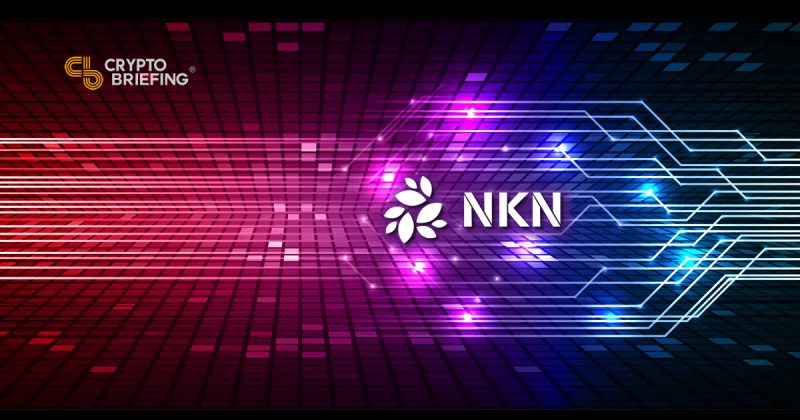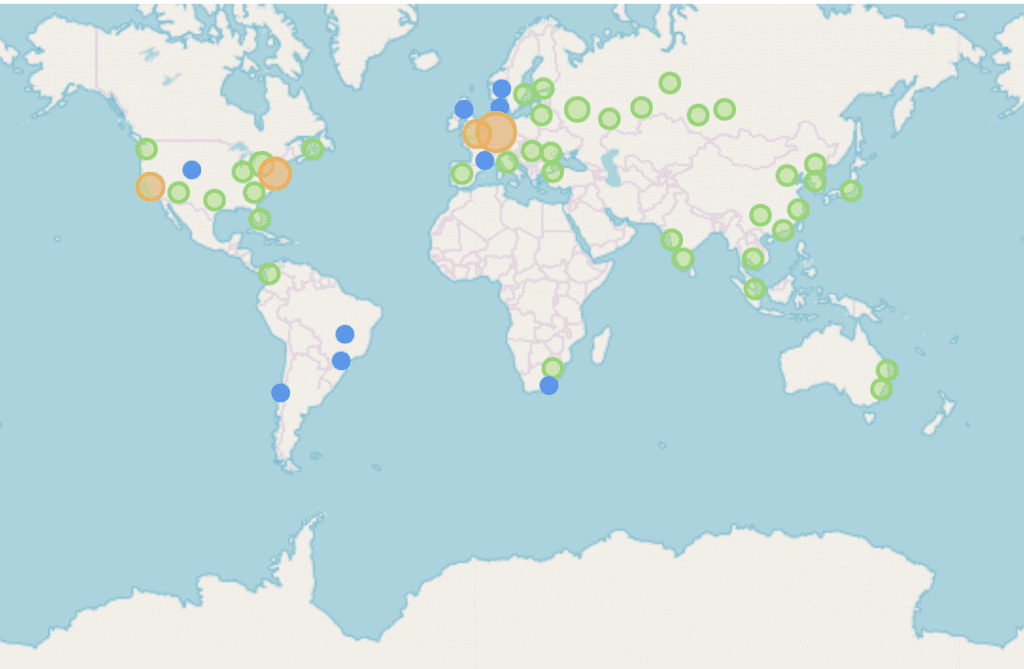
NKN Prepares For A New Kind Of Mainnet
A "New Kind Of Network" is seeking to pay users to share their unused bandwidth
Most internet connections are not used to their full capacity, with many users wasting their extra bandwidth while others eke their way along poor connections. While some of us have the can afford to pay for bandwidth we don’t use, many other users are priced out of higher-tier connections.
But what if you could rent out your unused bandwidth, as easily as trading a cryptocurrency token?
That’s the idea behind NKN, the “New Kind of Network,” named after Stephen Wolfram’s seminal work on computational systems. Although Wolfram was not part of the founding team, he has since been recruited as a technical advisor, along with cryptography pioneer Whitfield Diffie.
The project is broadly described as something a bit like IPFS, but for your router. NKN is designed to stitch together the web’s wasted bandwidth, allowing users to lend and share their connectivity in exchange for tokens. According to co-founder Bruce Li, NKN will be able to unlock another 50 or 60 percent of the web’s underutilized bandwidth.
After nearly a year operating on testnet, NKN is preparing for a full launch sometime next month. But unlike most new dLT networks, this one will have comparatively few question marks: when the main net launches next month, NKN will already have a full network with thousands of mining nodes and two working products.
The Amazon Strategy For Ground-Up Construction
“Our approach is like Amazon,” says Li. Just as the software giant started by selling books and CD’s, Li says, NKN founders are building their platform out from the two two sturdiest planks.
That may be an ambitious comparison, but NKN’s main net will launch along with two functioning products, which are expected to drive business until the platform is sustainable.
The first is nCDN, or “New Content Distribution Network,” a distributed platform where streamers and other content creators can efficiently share their content. “When you have have those nodes, very close to globally distributed, it’s very easy for us to help other people distribute content,” Li explains.
At present, NKN is exploring collaborations with a Chinese streaming service to decentralize video content, but NKN is not ready to reveal which service. “The most important thing for content delivery is latency,” Li explains. “The closer you are to the edge nodes, the better performance you have. “
The second product is Publish/Subscribe messaging, a decentralized widget which can power instant messengers or the customer support chat bubbles on most online websites. “We want to build this kind of chat bubble for applications and for websites, but decentralized,” Li says. “So you don’t have to have a centralized host, you don’t have to pay a lot of money, we use all the nodes in our network to distribute that message. ”
Neither of these products is particularly exciting, Li admits, but they may provide foundations for the rest of the platform. “If you go to any sane VC, they will say startups cannot sell a platform right away,” Li says. “[These products] are not very sexy, but we can build a lasting and profitable business around [them].”
Network Ready to Launch?
They also also allows NKN to approach its main net launch with more confidence than most new networks. NKN already has nearly 6,000 nodes, only 114 of which are run by NKN itself. The rest are run by supporters and the community, who will be able to exchange their testnet rewards for real tokens after the main net’s launch.

Unlike other blockchains, mining NKN is a comparatively simple; any kind of device can be used, from home computers and wifi routers to the simplest raspberry pi. Users are rewarded according to how much data they relay. Li estimates that the node count may increase 3-5 fold after the main net launch.
As the network approaches the mainnet launch, the real work is just beginning. “For us the main challenge is really putting more traffic on it,” Li explains. Using the decentralized nCDN and Pub/Sub, the next target is to “get clients to run their real workload on it.”

 Earn with Nexo
Earn with Nexo